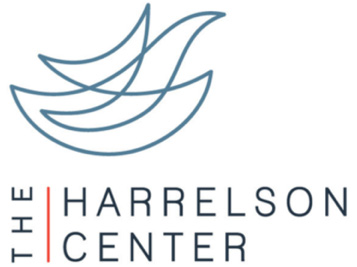The Harrelson Center is Wilmington’s campus for humanitarian nonprofits. People know they can visit our campus and find support for many of life’s challenges from interpersonal violence and food insecurity to childhood and family support, career counseling and more.
For immediate emergency needs, the Harrelson Center’s Help Hub stands ready to provide short-term financial assistance to help individuals and families in crisis. The Help Hub’s volunteer advisors work to stay utility shutoffs; they negotiate terms between landlords and delinquent tenants; they direct to emergency food pantries; they connect with medical providers for unmet health conditions; they understand the value of a kind word and patient listening.
Our neighbors know this. They know they can call the Harrelson Center – and they do, every day of every week to seek guidance and support.
Here are some of the calls received over just several recent weeks. Unless otherwise noted, all calls are directed to Harrelson Center staff or the Help Hub:
“I cannot come to the Help Hub due to physical limitations. Can someone bring my documents and complete the paperwork for me?”
“I have nowhere to go. I am homeless. The shelter is full and placed me on a waiting list. I have no money, no job and no warrants or criminal record.”
“Can I apply for assistance for rent and utilities at the same time?”
“My son is disabled and just getting out of prison. He needs help. Who should we see about helping him navigate life?” Note that our receptionist was able to connect this person to LINC, a nonprofit that empowers men and women returning from incarceration to be productive members of our community. LINC’s Local Re-entry program is on the Harrelson Center campus.
“No hablo inglés y necesito ayuda urgentemente.” This caller was transferred to Cape Fear Latinos, a nonprofit on the Harrelson Center campus dedicated to empowering and integrating Latino individuals into American society. CFL provides resources, education, and support to help the Latino community thrive and succeed.
“I am a homeless amputee seeking housing.”
“My brother has COPD and needs assistance with housing and rent and food.”
“My car is broke down. Is there any nonprofit organization that can help me get it fixed?”
“I have a court case coming up and nothing suitable to wear. Where can I get a suit?” This caller was connected with on-campus partner Philippians 3, which provides clothing for those whose life circumstances require a wardrobe beyond their immediate means.
“My boyfriend is violent with me. Where can I get help?” This caller was connected with our on-campus partner Community Justice Center.
“Is there a place for me to take a shower here?” We directed this person to the shower trailer’s schedule which is hosted by next door neighbor First Baptist Church every Tuesday evening, along with a family-style dinner.
“My husband, child and I are trying to get home and we have absolutely no money. Can you help us?”
“I need my car repaired. Can you help me?”
“My daughter has mental health issues. She has been hospitalized several times over the past few months. I need financial assistance. Even with the Help Hub and Salvation Army’s support, I am about to lose my house of 13 years. Where else can I go?” Note that the Help Hub will also try to cobble together additional support when it cannot provide sufficient funds.
“I am homeless”
“I am disabled and need assistance paying my rent.”
“I was hit by a truck and filed a lawsuit against their insurance company. I want to know if I could borrow $40 until my settlement comes in.”
A final thought about this last entry: Note the word, “borrow.” Indeed, it may surprise how often people who have been helped by the Help Hub repay what was given to them in their time of need. And, when funds cannot be repaid fully, thank you notes or personal visits to say “thank you, again” are frequent.
It’s a beautiful part of this work.

